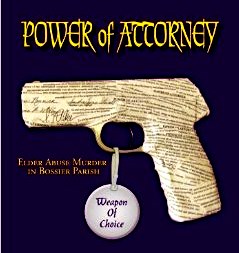 Following years of consultation, an amended Power of Attorney Act came into effect on September 1, 2011, and now has “some teeth” in enduring powers of attorney.
Following years of consultation, an amended Power of Attorney Act came into effect on September 1, 2011, and now has “some teeth” in enduring powers of attorney.
This new Act brings important changes to the law governing enduring powers of attorney (“EPOA”) i.e. those which remain or become effective after the maker or grantor of the power of attorney becomes mentally incompetent.
The important changes, by and large apply to enduring powers of attorney and not to other powers of attorney i.e. those which lapse once the maker or grantor (known as an “adult” in the new Act) becomes mentally incompetent.
Historically, enduring powers of attorney provided great potential for the financial abuse by unscrupulous attorneys. It is thus a welcome relief to see the tightening of the rules surrounding the granting and use of these enduring powers of attorney.
In this article we will summarize, in general terms, some of the noteworthy new provisions however we will only touch on a few. It is thus crucial for legal professionals to read the Act and inform themselves.
For our purposes, the noteworthy changes dealing with enduring powers of attorney (EPOA) may be classified broadly as follows:
a) the repeal of the former s.8 which previously set out the rules for EPOAs,
b) the enactment of new Part 2 containing the new rules covering
- the making of EPOAs ,
- setting out the duties, powers, liability and compensation of attorneys
- setting out when an EPOA becomes effective, how it may be changed, revoked, suspended or terminated and the limits on the authority of the attorney,
c) the enactment of new Part 3 covering general matters such as access to information, reporting abuse and neglect to the Public Trustee, investigations by the Public Trustee, seeking directions from the court plus other procedural and jurisdictional matters.
d) the inclusion of a new optional standard form for powers of attorney.
The Mental Capacity Required to Grant an Enduring Powers of Attorney
Much of the financial abuse seen in our own practice has involved abuse by an appointed attorney i.e. the very person previously entrusted by the victim to handle his or her affairs.
We thus view the raising of the bar in terms of the mental capacity required of a person granting a EPOA as a refreshing change. The Act sets out several criteria which must be met in order for a person to be mentally capable of granting an enduring power of attorney.
As an aside, some of the wording in the Act seems a little confusing at first blush—for example the maker of the POA is described as an “adult” and the criteria for capacity are stated in double negatives.
For example, s. 12 specifies that an adult may make an enduring power of attorney unless the adult is incapable of understanding the nature and consequences of the proposed enduring power of attorney. The adult is incapable of understanding the nature and consequences of the proposed enduring power of attorney if the adult cannot understand all of several concepts.
To restate this in positive terms, in order to be able to make a EPOA, a person (an “adult”) must be able to understand all of the following:
a) The property the adult owns and its approximate value;
b) The obligations the adult owes to his or her dependents;
c) The fact the appointed attorney will be able to do anything financial, that the adult could do if capable, subject to the conditions and restrictions set out in the EPOA, the only exception being making a new will on his or her behalf;
d) That, unless the attorney prudently manages the adult’s business and property, they may decline in value;
e) An attorney can, and may possibly misuse their authority;
f) The adult may revoke the EPOA so long as they are mentally capable; and
g) Any other prescribed matter i.e. any further matter set out in a legal enactment
s. 11 presumes an adult to be mentally capable “until the contrary is demonstrated”. The Act unfortunately provides little guidance as to what mechanism will “demonstrate” incapacity. Presumably demonstrating incapacity will involve proving the absence of understanding of one or more of the concepts delineated in s. 12.
Raising the Bar in terms of Required Mental Capacity
The new s. 12 significantly raises the bar vis-à-vis the mental capacity required to grant a valid EPOA. Previously our courts used a lesser standard in assessing the mental capacity required.
The test for mental capacity was previously set out in the decision of Egli v Egli Estate, 2005 BCCA 627. According to this decision, the mental capacity required was simply whether or not the maker (adult) understood the nature and effect of the EPOA.
There was no requirement that, at the time of granting, the adult know and understand the nature and extent of his or her property and financial affairs. Neither was there any requirement that the adult, then be capable himself or herself of performing the acts, authorized by the EPOA, for the attorney to perform.
This previously low standard has thus been substantially raised in terms of the mental capacity required to grant a EPOA. It is now in the same range as that required to make a will.
If an adult lacks capacity based on the various criteria set out in s. 12, then the enduring power of attorney will be invalid.
This new, more exacting standard will undoubtedly reduce the potential for financial abuse by attorneys.
Appointment of an Attorney
An attorney is a trustee or fiduciary in respect of the adult appointing him or her as attorney.
There are restrictions set out in s. 18 of the Act as to who may be named as an attorney. To avoid an obvious conflict of interest, caregivers, may not be appointed as attorneyunless they are the child, parent or spouse of the adult.
Other than caregivers, the adult may appoint as attorney an individual, the Public Guardian and Trustee, or a trust company licensed under the Financial Institutions Act. The adult may also appoint alternate attorneys, or appoint more than one attorney and assign the same or different areas of authority to each.
An adult may give an attorney the power to do anything which the adult may otherwise lawfully do, by agent, in relation to the adult’s financial affairs. These powers are limited to the adult’s financial affairs. By the s. 10 definition, the adult’s financial affairs includes their business and property, and the conduct of their legal affairs.
An attorney does not have power to make decisions about the adult’s personal care or health care. Such matters are instead left to be dealt with under any Representation Agreement or Advanced Directive
Duties of Attorney
The essential duties of an attorney are set out in s. 19. That section reads, in part, as follows:
“s. 19 (1) An attorney must
(a) act honestly and in good faith,
(b) exercise the care, diligence and skill of a reasonably prudent person,
(c) act within the authority given in the enduring power of attorney and under any enactment, and
(d) keep prescribed records and produce the records for inspection and copying at the request of the adult”
Notably s 19 (1) (d) creates a new statutory requirement to keep and produce financial records. These records are defined in s. 2 of the regulations. They include a current list of assets and liabilities, invoices, bank statements, and other records as required to provide a full accounting of receipts and disbursements, income and capital.
s. 19 (3) includes many other duties such as, in general terms, a duty to
a) give priority to meeting the personal care and health care needs of the adult, to the extent reasonable
b) invest only in accordance with the Trustee Act, unless the EPOA states otherwise
c) foster independence and encourage the adult’s involvement in decision-making, to the extent reasonable
d) not to dispose of property that is left as a specific gift under the adults will;
e) to keep the adult’s personal effects at their disposal, to the extent reasonable
s. 19 (4) requires the attorney to keep the adult’s property separate from his or her own unless the property is jointly owned by the adult and the attorney. In other words, the attorney must not mingle the adult’s property with his or her own.
Powers of the Attorney
An attorney may make a gift or loan, from the adult’s property if the EPOA expressly permits this or if the adult usually made gifts of that nature and will have enough left over to cover their needs and obligations. The total value of all gifts and loans in a year, however, must not be great than $5000 or 10% of the adult’s taxable income for the previous year, whichever figure is the lesser.
An attorney has no power to make or change a will for the adult. Nevertheless, an attorney may, with court approval, change a beneficiary designation such as, for example an insurance or pension benefit. Otherwise the attorney has power to rename a previous beneficiary previously named by the adult while mentally capable, in any renewal or replacement instrument. In any new instrument, the attorney may name the adult’s estate as the designated beneficiary.
New Optional Template for Enduring Power of Attorney
The province has also provided for an optional new standard form for Enduring Powers of Attorney. The new form, which is not mandatory, contains several useful provisions. It includes
a) a revocation clause;
b) a procedure for appointing of an alternate attorney and a means for providing evidence of the alternate attorney’s authority to act;
c) a specific statement of the attorney’s authority;
d) a requirement to specify whether or not the attorney is to be compensated and, if so, how compensation is to be determined;
e) a statement of the conditions precedent to the EPOA becoming effective. For e.g. it may become effective immediately on signing by both the adult and the attorney or only upon the happening of a specified event such as a medical specialist declaring the adult incompetent;
f) a specific provision for signing by the attorney as well as the adult. Each of them must sign in the presence of a witness, if the witnesses a lawyer or notary publics; otherwise, 2 witnesses are required. This provision for signing by the attorney is separate from the attorneys statutory declaration that is required if the EPA is to be filed in the land title office.
CONCLUSION
Enduring powers of attorney are a valuable tool in estate planning however there is unfortunately an associated history of financial abuse. In terms of this historical abuse there were several factors at play including
- the low threshold for mental capacity to grant an EPOA,
- the lack of record keeping requirements and
- the lack of routine oversight of an attorney’s actions by the courts (in contrast to committeeships under the Patients Property Act)
We are optimistic that the new Act sets new standards for reducing this potential for financial abuse.
Although adults and attorneys will both require more legal advice than previously, this seems a good compromise in order both to limit the risk of financial abuse and to avoid the greater expense of committee proceedings and appointment under the Patients Property Act.




